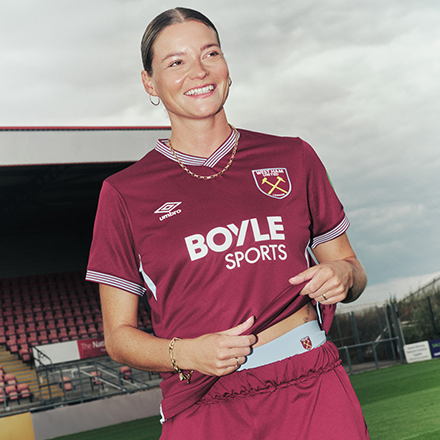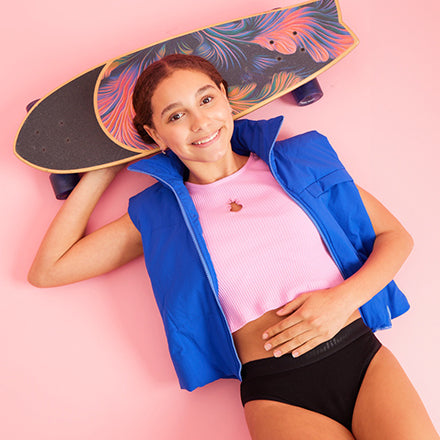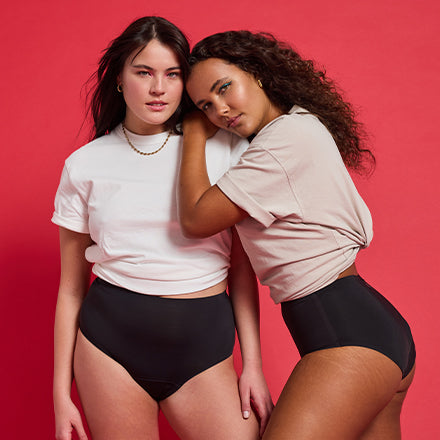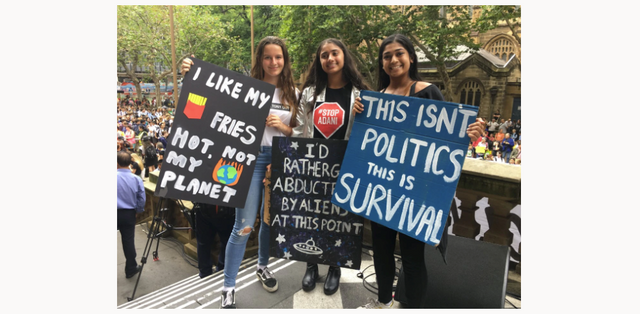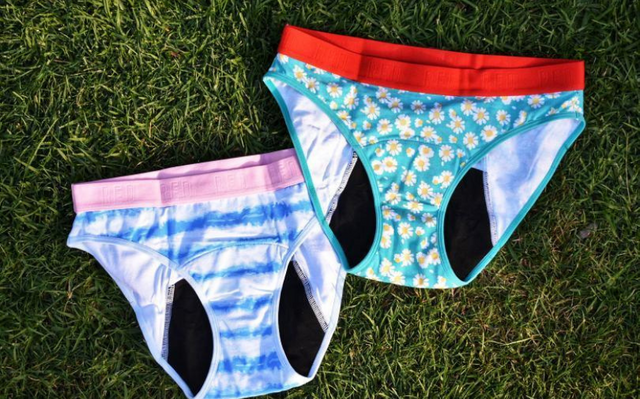At RED, the future of the planet is important to us.
We believe the actions we take over the next few years are crucial. When just 100,000 people use Modibodi alone from the start of their menstrual cycle, 11 billion disposable hygiene products are prevented from ending up in landfill.
This week we hear from Tiara who is trying her best to make informed and environmentally conscious decisions when it comes to living more sustainably, she wants to help the future generation make real changes and to help educate the older generation on how they can help.
“I want to be able to help people. I want to be able to fight injustice and be a voice for the younger generation”

Tell us a bit about yourself
My name is Tiara De Silva, I'm 18 and I'm a human rights and environmental activist. My hobbies include spending time with family and friends and reading.
What does sustainability mean to you?
Sustainability to me means trying my best to make informed and environmentally conscious decisions. Although I am definitely not a pro, I try my best to approach my daily life sustainably, even if it is as small as having “no meat” days, re-selling and donating items such as clothing, or reducing the household energy by taking shorter showers, and not buying disposable plastics.
One thing I’ve learnt about adjusting to a more environmentally conscious lifestyle is that plastic is very convenient, but also very dangerous. You can accumulate a lot of plastic over your lifetime, on items like water bottles, toys, stationery, and (for those who menstruate) even your personal hygiene products.
What was your involvement with Youth On Strike, why did you to get involved?
My involvement with YOS was probably the coolest thing I’ve ever done!
I’m so grateful for the experience. Around the time we started filming I was a new activist and I had only started doing research. I knew I wanted to get involved when I started talking to people about the issue, doing further research and helped at youth organisations such as School Strike 4 Change.
I realised just how underrepresented and overlooked the voices of young people were, it was disheartening, to say the least. Additionally, I found that the film concept was amazing, and I loved the idea of giving a platform to the younger generation as climate change will affect us greatly in the near future.

What do you hope to achieve in the future?
I want to be able to help people. I want to be able to fight injustice and be a voice for the younger generation, but more so I just want to keep learning.
What do your family and friends think of your involvement and passion for the environment?
I have two older sisters and they were always so supportive! Without them, I wouldn’t have been able to rally. I have the full support of my mum, and she is so encouraging of my passions. My friends were equally as awesome and encouraged me offline as well as online.
As there is with topics such as politics and climate change, there was some backlash from classic ‘climate deniers’, that discouraged me for a period of time. However, I was encouraged by fellow peers, family, teachers, and complete strangers online and the positivity outweighed the negativity!
How do you think your generation can help and what can the older generations learn from you?
I believe my generation can help all generations by first, educating themselves and others on issues such as climate change and the importance of environmental sustainability.
I believe that an important lesson we can both teach and learn ourselves as consumers is the ‘2.2.2 method’. Take a plastic bottle for example, in the first 2 minutes of purchasing it, it’s useful because it is serving its temporary purpose. In 2 weeks, you’ve probably fully utilised it and are on the brink of disposing it. Now in 2 years you probably won’t even think about where that bottle has gone, however, it takes 450 years for it to decompose and there are millions of them in landfill.
I learnt this from a friend and have since started applying it to my everyday life and communicating it to others. It is a simple thought that put our actions into perspective.
Furthermore, I think we could all benefit from looking beyond our everyday lives. It’s unfortunate that issues as serious as climate change and environmentalism have been politicised, especially with governments placing more importance on destroying important ecosystems and jeopardising animal species for coal mines. But that’s why we, as a community, need to pay more attention to what is going on and what is both directly and indirectly affected.
Is being environmentally conscious important to you when you shop?
Yes, it has become more important to me, especially as I find out how my items are made, who is making it and how this item is contributing to pollution.
What do you think of Modibodi and its mission to end disposable period products?
I think it’s amazing, and it’s certainly an issue that needs to be catered to!
Did you know how much plastic was in disposable period products and that they can take 500-800 years to break down?
Until recently, I hadn’t fully realised the extent to which personal hygiene products contribute to pollution. Modibodi offers such comfortable and easy to use items, and I love that they are reusable. Investing in items such as period underwear is one way for us to reduce our carbon footprint and reduce how much waste is produced.
We support young powerful voices! Speak up, speak out and together we can create change.
Help reduce unnecessary amounts of waste, especially plastic, from ending up in landfill and our oceans by switching to reusable period underwear. It’s just one way to reduce your monthly plastic waste. Did you know pads and tampons take 500-800 years to break down?



